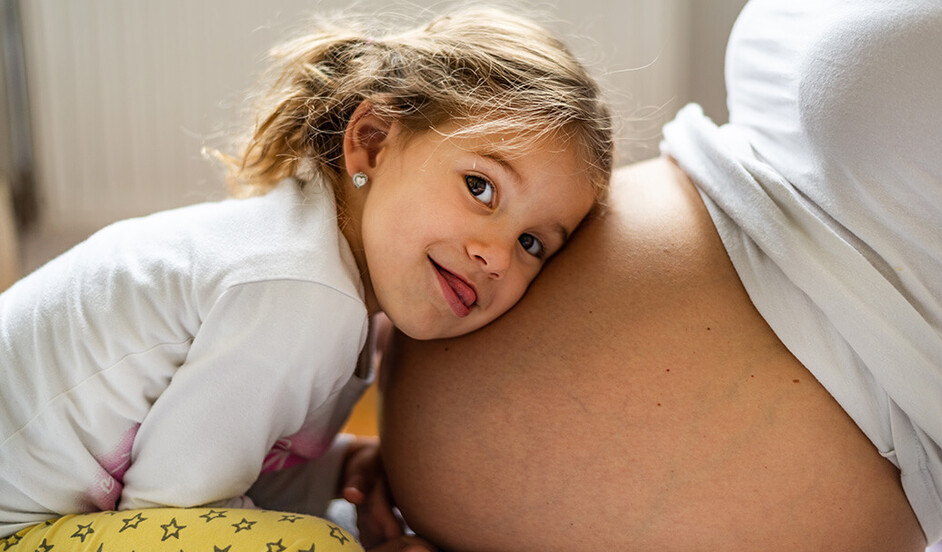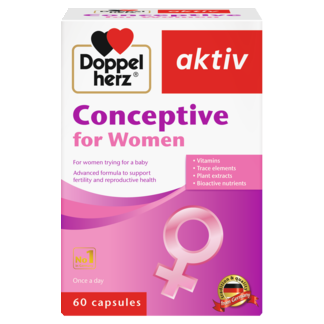Mother & child

Products for mother & child


Important nutrients for mother and child
However, not only should the child be well taken care of, but also the mother.
Your body has to endure a true marathon during pregnancy. But make sure to watch your caloric intake, because it is difficult to lose the extra pounds again after giving birth. If your diet is well balanced and consists mainly of fresh, regional products, you are already doing a lot of things right!
Folic acid - think of it early when wishing for a child
To many women, folic acid is known as the "pregnancy vitamin." Not without cause, for it plays a decisive role in the development of your child during pregnancy.
Already while desiring a child, women are recommended to ingest folic acid because the decisive cell formation and division processes take place right at the early stage of pregnancy. The neural tube from which spinal marrow and brain develop,
for example, forms as early as the 18th day of pregnancy, and folic acid is urgently needed for this process. But at this point, most women are not even aware of their pregnancy yet. Therefore, they ought to supplement folic acid ideally as soon as they stop taking contraceptives.
Folic acid not only supports the healthy development of the baby's body cells, but also contributes to the formation of blood and growth of maternal tissue. For both the uterus and the mother's abdominal tissue grow at a rapid pace now.
The daily demand of folic acid doubles during pregnancy from 0.4 to 0.8 mg. According to the National Consumption Survey of 2008, however, the folic acid levels are not optimal, and many women enter pregnancy under-supplied.
Adequate intake of vitamins should also be ensured during lactation because folic acid supports your baby's development and growth even then.
Food containing folic acid:
- White beans
- Wheat germs
- Leafy greens, such as rocket or broccoli
- Offal, such as calf's or poultry liver
- Lentils
- Tomatoes
- Nase
- Whole-grain products
Attention: Treat food items carefully. Folic acid is sensitive and should be protected against heat, oxygen, water and light.
Omega-3 – important for mother and child
Not only vitamins, minerals and trace elements are vital to our health, but also healthy fats. Fats that promote health in a special way include the polyunsaturated omega-3 fatty acids, such as eicosapentaenoic acid (EPA) and docosahexaenoic acid (DHA). Good sources for these fats are sea fish, like herring, salmon and mackerel.
The fatty acid DHA plays an important role in the brain as it is significantly involved in the linking and transmitting of signals that make thought processes possible in the first place.
The unborn child in the womb already builds the omega-3 fatty acid into its brain and into the retina of its eyes. If the mother is well supplied with EPA and DHA, then so is the child, as she delivers the omega-3 fatty acids to her baby via the umbilical cord.
But what does the levels of the essential omega-3 fatty acids look like in children and adults? Unfortunately, it often does not meet the recommendations of the nutrition societies. Many people eat considerably less fish than recommended, and 16 % of German citizens eat no fish at all. In children and adolescents, the levels are often inadequate as well, although there are many studies stating that children, too, ought to ensure a good supply with omega-3 fatty acids.
The problem: Children especially do not like to eat fish several times a week in order to reach the recommended values of omega-3 fatty acids. In those cases, a good alternative could be the intake of appropriate food supplements. Made specifically for children, there are tasty gel tabs or Doppelherz Omega-3 FLÜSSIG with fruit flavor.
Iodine – indispensable for the thyroid gland
The same way folic acid is known as the pregnancy vitamin, iodine is associated with the thyroid and the thyroid hormones. The trace element is needed by both mother and baby.
During pregnancy, a woman's production of thyroid hormones increases by up to 50 % due to extended metabolic processes.
The growing baby starts producing hormones in the thyroid already in the 12th week of pregnancy. These hormones are needed for building the central nervous system, among other things. Iodine is, furthermore, required for the normal growth of the baby.
Now it becomes clear why iodine should be delivered to the child's blood circulation. Pregnant women are recommended a daily intake of 260 µg.
Unfortunately, even the normally required quantity of 200 µg is not achieved by many people, according to the German Nutrition Society. The reason is that both plant and animal-based foods have a low iodine content.
A good source of iodine, however, is the ocean. Sea fish, such as herring, pollack and codfish or seafood are rich in iodine. But also milk and dairy products supply the trace element. Iodine is also added to some table salts, which are then labeled as "iodized table salt".
Iodine in food
(200 µg iodine are contained in:)
- 50 g pollack
- 150 g mussels
- 400 g tuna
- 1 kg spinach
Attention: Seaweed and algae are loaded with iodine. They should not be eaten too frequently, as excessive amounts of iodine over the long term are unhealthy.